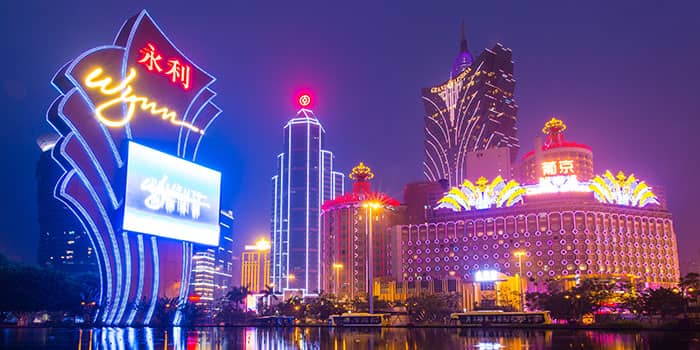
Wynn Macau Spending Big
Wynn Macau announced it’s planning an investment of MOP17.8 billion (approximately $2.22 billion) in the special administrative region (SAR). A big piece of these investments is going to be focused on expanding revenue through non-gaming enterprises. This is a general trend that’s expected, as the SAR announced that broadening their non-gaming portfolio is going to be a new requirement for approved concessionaries, such as Wynn Macau.
The biggest piece of this investment – MOP16.5 billion (approximately $2 billion) – will go towards non-gaming diversification and growth in international markets, a report by Inside Asian Gaming (IAG) says. The report had Linda Chen – vice chairman, chief operating officer and executive director – and Craig Fullalove – chief financial officer and senior vice president – sharing more details about the company’s plans moving forward.
The company’s efforts in expanding its non-gaming operations include plans for introducing a new theater, an official Wynn Event and Entertainment Centre, amusement attractions, an international gastronomy venue, and much more. As far as broadening its international presence, the plans rely on the brand’s well-established premium position. The upcoming operation in the United Arab Emirates was also outlined.
Sweeping Changes in Macau
The new concessions were announced at the tail end of November, with the Macau government signing the documents for the 10-year concessions last Friday. Wynn Macau is one of the six concession holders, joined by Galaxy Entertainment Group, Sands China, MGM China Holdings, SJM Holdings, and Melco Resorts & Entertainment. The sentiment behind the latest news surrounding Wynn Macau is probably going to be echoed throughout headlines about the other concessionaries as well.
The new gaming laws in the SAR had already started a wave of changes and adjustments in the operators’ businesses. Wynn – alongside the others – underwent a capital restructuring in order to comply with the new requirements for a minimum of MOP5 billion (approximately $624.34 million) in registered capital, up from the previous requirement of MOP200.1 million (approx. $25 million). The other operators have had to do the same.
The requirements for expanding non-gaming business were topping the list of other requirements that the new concessionaries were subjected to, alongside creating separate gaming zones for Chinese and foreign visitors. So, although the license allocation process saw the list of concessionaries unchanged, the SAR is currently in the process of transforming its business landscape to accommodate the lessons learned from its pandemic experience.
As news continues pouring in about what plans operators have in store to diversify their portfolios, many are being increasingly optimistic about the SAR’s tourism business and potential economic revival.